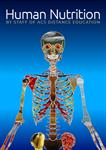
LEARN TO MANAGE WEIGHT THROUGH A BETTER DIET
Explain all aspects of how nutrition affects weight loss.
This course is ideal course for people working with children in the child care industry; fitness leaders or health professionals who need to upskill with respect to nutrition.
It is also a good course for mothers wanting to understand their children’s nutritional needs and learn to cope with them or for self enhancement.
Lesson Structure
There are 9 lessons in this course:
-
Understanding Obesity
-
Causes
-
genetics
-
lifestyle
-
exercise
-
eating habits
-
affect of pregnancy
-
medical conditions
-
diseases, water
-
changes at different stages of life (adolescence, menopause, etc)
-
evaluation of weight status & body composition
-
Nutrition Basics
-
revision of the basics
-
discussion of food sources, organic/inorganic
-
not just what you eat but how & when you eat
-
Healthy digestion, etc
-
Diets
-
Fads, Fiction and Fact
-
review of a range of popular approaches to Weight Control
-
starvation
-
ketogenic diets
-
dieting
-
crash diets
-
supplements
-
cleansing/elimination diets
-
low carb diets
-
sweeteners
-
fat substitutes
-
dangers
-
Preventing Obesity
-
Introduction
-
Metabolism ... Keeping the Metabolic Rate Stable
-
Making the best food choices
-
Nutritional Education
-
Teaching Healthy Eating Habits to Children
-
Health Initiatives Targeting Obesity
-
Public Health Information
-
Legislative controls
-
Treating Obesity
-
Methods that Work
-
Assessment of Clients or Patients
-
Modifying Behaviour
-
Prescribing Diets
-
Life Coach and Personal Trainer
-
Weight Loss Hypnosis
-
Self-help Groups
-
Health Clubs, Health Farms and Holiday Retreats
-
A Holistic Approach
-
Supplements
-
Modifying Eating Behaviour
-
Key Stages in Behaviour Changes
-
Cultural food patterns
-
How to Make Lifelong Changes
-
Assess Current Diet (patterns and nutritional value)
-
Plan for Change
-
Seek Motivation and Support from Others
-
Improving Health Through Food
-
Diseases Linked to Obesity
-
Changing Unhealthy Habits
-
Restricting Calorie Intake
-
Understanding Energy and Metabolism
-
Metabolism
-
Energy Metabolism
-
Age (Growth and Aging) and Metabolism
-
Activity and Metabolism
-
Calorie Restricted Diets
-
Medical Conditions: Hormones, Drugs, Eating Disorders
-
Nutrition During Disease
-
Childhood Diabetes
-
Link between Medication and Diet
-
Drugs and Hormones Prescribed for Weight Management
-
Diet Pills
-
Thyroid hormone
-
Somatropin (Growth Hormone
-
Weight Loss Surgery
-
Lipoplasty (Liposuction)
-
Abdominoplasty (Tummy tuck)
-
Anorexia Nervosa
-
Bulimia Nervosa
-
Planning a Diet
-
A major Problem Based Learning Project
Aims
-
Develop an understanding of modern day causes of obesity and recognise its significance to health.
-
Evaluate the weight status and body composition of an individual.
-
Explain a range of weight reducing diets and to evaluate how ‘healthy’ different diets are in terms of nutrient balance and consider how practical the diets are to follow
-
Explain the relationship between nutrition and obesity.
-
Determine appropriate actions to manage eating habits in individuals and in demographic groups for prevention of obesity.
-
Determine appropriate treatments for treatment of obesity.
-
Compare different techniques for modifying eating behaviour in order to control obesity.
-
Analyse the calorie intake of an individual and recommend changes in order to manage obesity
-
Describe a range of medical conditions and treatments that can affect obesity, and explain appropriate dietary management responses to those conditions.
-
Evaluate the obesity problem of an individual and determine a recommended course of action within a limited time frame; and using available information and resources gathered within that time frame.
Obesity
This course helps you understand obesity, particularly focusing on the effect of what we eat has on weight.
There are two types of obesity – this theory is been based on differences between the anatomical characteristics of adipose tissues. Adipose tissue is the loose connective tissue which is responsible for energy storage in the form of fat (lipids). It also provides insulation from heat and cold and offers protective padding around vital organs e.g. the liver.
Hyperplasia of adipose cells – this is an increase in the number of fat cells. The number of cells can be as much as five times greater than those found in a healthy child of average weight. Fat cells can also show some enlargement, but this is not vast. The core and extremities of the human body experience hyperplasia of adipose cells.
Adipose tissue contains several cell types, with the highest percentage of cells being adipocytes (more commonly known as fat cells), which contain fat droplets. The two different types of obesity are seen in children and adults, with one more predominately identified in children and the other predominately found in adults.
Hypertrophy of adipose cells – this is when adipose cells are greatly enlarged or ‘hypertrophied’. The number of fat cells may be same or may increase slightly in adults. Fat distribution is mostly centralised in this type.
Why Study this Course
With obesity levels so high, there are many misconceptions of the nutritional value of the foods we eat. This course will provide you with an understanding of the effects that food has on our weight and how to manage the food we eat in order to control our weight. The course has a large emphasis on obesity. It is a great course for someone working in the health and fitness industry who wants to specialise in nutrition or, equally, a great course for someone with a personal interest to control their weight through appropriate nutrition.
